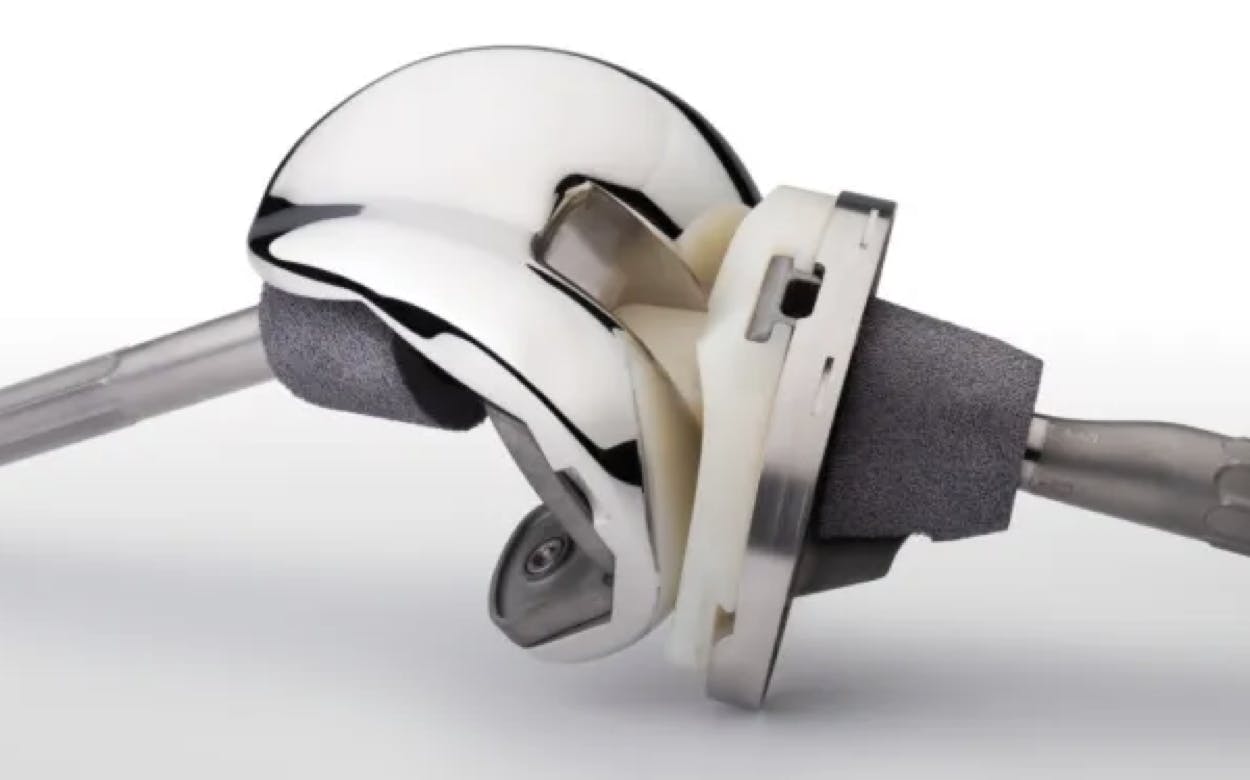Zimmer Biomet’s smart knee reminds us to do our rehab exercises

The news
Surgeons at the Hospital of Special Surgery in New York City performed the first-ever knee replacement using a smart knee implant in October. Called Persona IQ, the knee combines a proven knee implant from Zimmer Biomet (founded in 1927) with Canary Medical's (founded in 2013) implantable tibial extension sensor technology, which measures and determines range of motion, step count, walking speed, and other gait metrics.
According to the press announcement, the data should give physicians and patients an accurate view of rehab adherence—a common phenomenon, according to research—and the patient's recovery process.
Once implemented, the knee records a variety of data and transmits it wirelessly to a personal base station. From there, the data is transmitted to a cloud-based platform where surgeons can view and assess recovery progress after surgery. Previously relying on patient-submitted data and follow-up exams, this gives both the patient and the treating physician a much more objective dataset.
Even though this is certainly one of those "it was only a matter of time" innovations, the event has its place in history: We are entering the age of smart implants!
Our perspective
Certainly, we should be talking about the privacy, cleanliness, and vulnerability of new implants, as well as their battery life, replacement routines, data sovereignty, cybersecurity, insecure data architectures, and other IoT-related risks and threats. But more on that in a future edition.
Today, we'd like to highlight the productive corporate-startup partnership between Zimmer Biomet and Canary Medical. It has been our experience that the larger the company, the less likely innovation is to be aligned with industry challenges—and the more likely it is to suffer from departmental bias. A collaborative mindset that targets the medical technology ecosystem, with its inexhaustible source of external, intelligent, well-trained, experienced, and motivated talent, can help overcome these obstacles.
Collaborating with startups can be critical to growing and driving innovation. Not only do startups grant access to new technologies, or allow corporations to outsource pilot and proof-of-concept projects, but they can also introduce digital skills and qualities, as well as new perspectives on customer needs. In short, it can be worth it. We will definitely keep an eye on the relationship between Zimmer Biomet and Canary Medical.